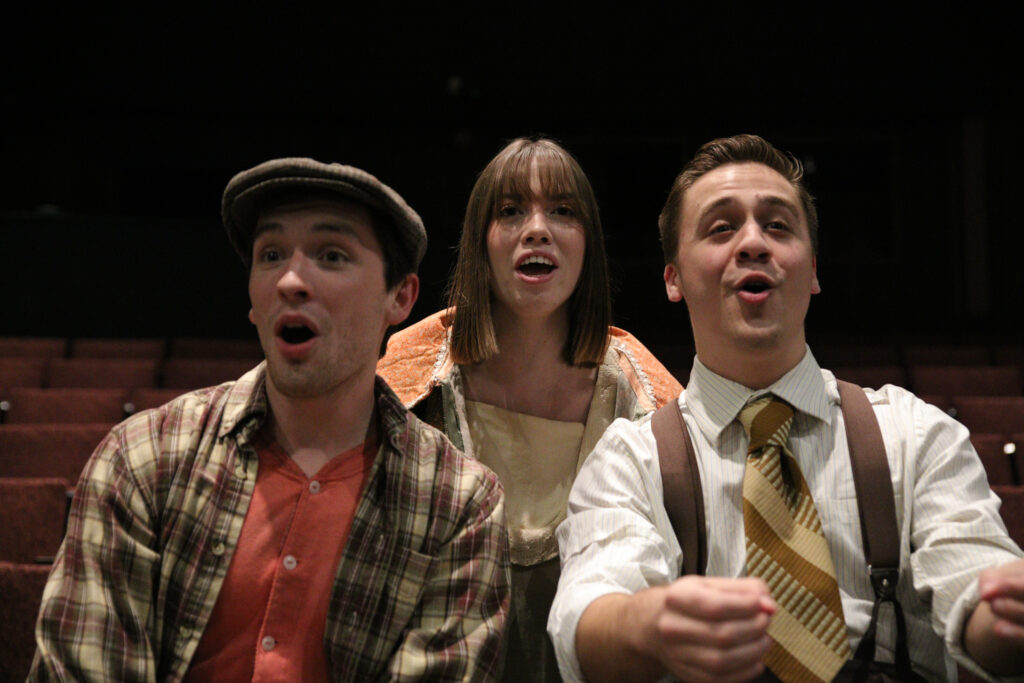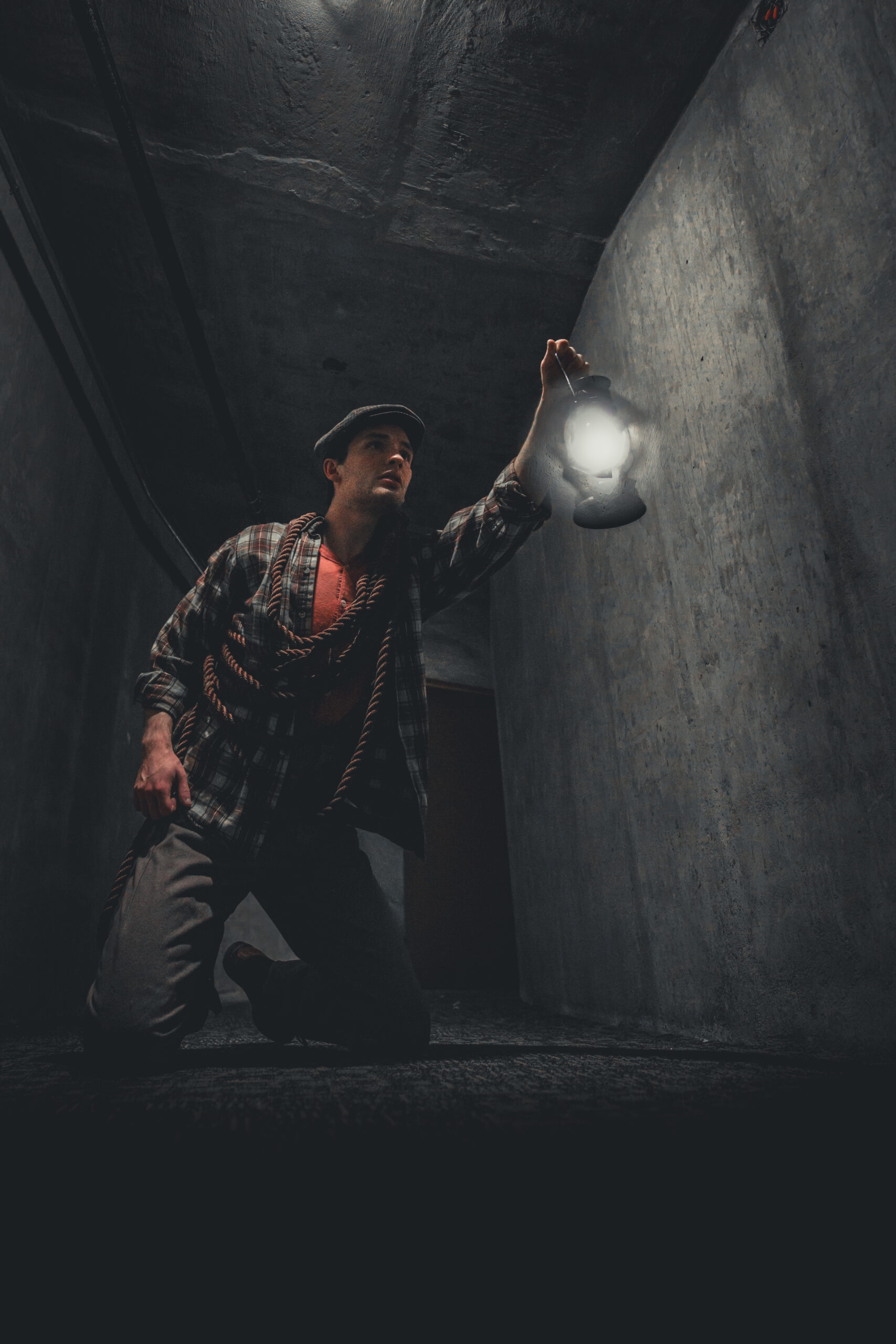LOGAN — Floyd Collins, a musical with music and lyrics by Adam Guettel and a book by Tina Landau, is not one often produced. First performed in 1994 at the American Musical Theatre Festival in Philadelphia, the story follows the true events of Collins, a cave explorer in 1925 who gets caught in the Mammoth Cave system in Kentucky and does not survive a rescue attempt, dying only a few days before rescuers reach his body. Sounds dreary, no? However, everything one can read about this musical is filled with praise, so when Utah State University announced their mounting of this production, making the trip to the Morgan Theatre on the USU campus was essential.
Directed by Jason Spelbring, this production was nothing short of mesmerizing. The first thing the audience was greeted with was a costume and set display in the lobby, with some historical notes by dramaturg Matt Bodiker. The notes on the wall outside the theatre by Bodiker were continued in the digital program, and the thoroughness with which Bodiker not only researched the full story of Collins, but also the level of sensitivity with which he contextualized what was happening with diverse populations in history during that time period, and how those stories are not as often told was a beautiful background for the story.
The set by designer Ky Trupp, with projection designer Joshua Legate was absolutely mind-blowing. There really is no other way to describe this. I have not yet been to Mammoth Cave National Park, but I have been to the similar Wind Cave, as well as a few other cave systems, and the way that Trupp and Legate were able to create a structure on the stage that was so realistic that I felt like I was back at Wind Cave. A few times I found myself wanting to walk up on stage and touch the rocks and had to remind myself that these were projections, not actual stones.
Live music was provided by a troop of eight musicians headed by music director Dallas Aksoy. The live music found at the Utah College Theatre programs is refreshing. The music written by Guettel had a strong bluegrass feel that felt apropos for the location and time period, and the live musicians along with the amazing vocals of everyone in the cast truly set the stage for something memorable. Willoughby Staley wore many hats in this production, playing guitar on stage as well as acting the role of Jewell Estes, and serving as dance captain. Their ability with the guitar combined with their vocals gave the show quite a homey feel, which was necessary with such a deep and dark subject matter.
Levi Hopkins as Floyd Collins had a golden voice, which was evident from the first number “The Call”. What was even more enjoyable was when he joined in song with his brother Homer, played by Brett Terrell, with songs such as the act one closer “Riddle Song”, where both of their clear voices were showcased, as well as the excellent direction and staging that brought out a lot of the touching imagination that likely goes on as people struggle with the tragedies of life. The acting necessary to gain the empathy and concern of the audience, while spending the majority of the show laying down, was fantastic.

An interesting element was the ensemble of players that played the press agents, who represented the spectacle that surrounded the story of Floyd. It became a national sensation that brought people from all over, starting an impromptu carnival and setting off events that are theorized to have lead to the earth changes that caused Collins’s death. The character of Skeets Miller, played by Ryan Adams, was a factual reporter who spoke with Collins while trapped and reported much of what happened to bring the situation about. The emotion with which Adams played this role, and showed the reflection of the severity of the events, was inspiring. The ability of this storyline to cause the audience to reflect on how we consume media and what that means for those who are the subject of that media still haunts me.
The final solo of Collins, “How Glory Goes”, was a beautiful exploration of life and loss and how that feels. The vocal prowess of Hopkins was remarkable, and the lighting design by Carter Lee, with the mix of stars and lights and dark at key moments was absolutely breathtaking.
Floyd Collins as a musical is one of those shows that can leave a person wondering why would this subject matter be made into a story with song? After having witnessed it, I find myself feeling more conflicted that we do not see this story, and others like it, as pointed out by dramaturg Bodiker, told more often. We go to the theatre to be entertained, yes, but we also go to be informed. The amount of history and humanity I gained last night at Utah State was entirely worth the small price of admission. With my recent experiences attending other collegiate productions across the state, it is clear that Utah is a phenomenal place to gain a theatrical education.
[box]Floyd Collins plays at the Morgan theatre on the USU campus Feb 29, March 1-2 at 7:30pm, 4030 Old Main Hill, Logan, Utah. Tickets are $10-15. For more information see https://cca.usu.edu/theatre/productions [/box]
